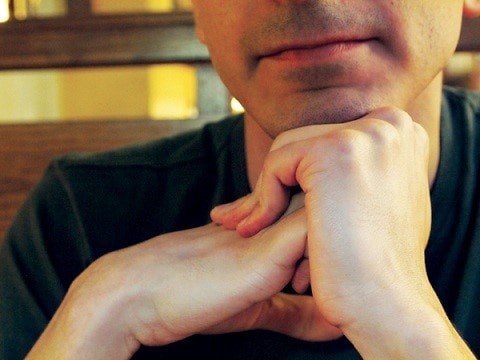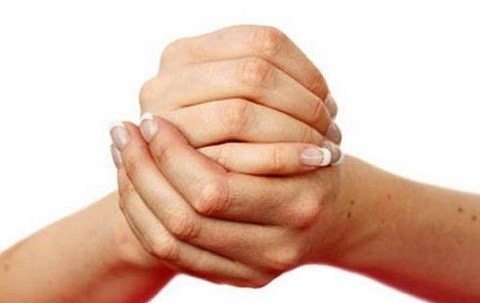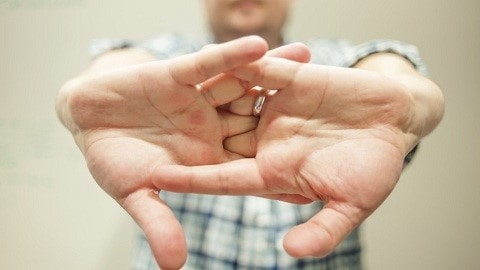The habit of cracking your knuckles is incredibly dangerous.
If you crack your joints frequently, the bone structure will automatically adapt and the joint membrane and surrounding ligaments will stretch, leading to problems such as wear, degeneration and inflammation of the joint cartilage.
Cracking your fingers and toes is a habit many people have when they feel tired or stiff in their fingers, or after doing a certain job for a long time. Cracking your knuckles makes us feel more comfortable and relaxed, but this action affects our health.
 |
| Cracking our knuckles makes us feel comfortable but affects our health. |
Arthritis
Each joint is made up of two joint surfaces, covered by a joint capsule and a system of ligaments that bind and hold the joints firmly. When cracking your knuckles, unlike normal flexible stretching, the joints are stretched suddenly, making a clicking sound. If the stretch threshold is exceeded, the joint capsule will have to endure a huge impact, making the ligaments easily stretch and tear.
Wear and tear of joint surfaces
If you crack your knuckles for a long time, the friction and pressure on the joint surface will increase, causing wear and tear on the joint surface, and more seriously, the risk of degeneration and inflammation of the articular cartilage. Each time you crack your knuckles, it causes microtrauma to the joint and the cartilage cells will be microtraumatized. If microtraumas accumulate in the same joint, over time, the cartilage will be depleted.
 |
| Each time the joint is bent or straightened, it causes micro-trauma to the joint. |
Effects in old age
Hand injuries due to the habit of cracking knuckles are inevitable. Maintaining the habit of cracking knuckles for a long time can easily cause joint pain in old age.
2% of cartilage is cartilage cells and cannot recover when injured. Manipulating or bending joints will cause cartilage to wear down, leading to degeneration.
Once the cartilage is worn away, it cannot recover, bone spurs will grow, affecting the tissue around the joint, causing swelling and pain in the fingers. As you get older, tendons, cartilage, and ligaments become less flexible and more vulnerable, so twisting and cracking your joints will accelerate the rate of joint degeneration.
 |
| Hand injuries due to knuckle cracking are inevitable. |
Advice
After each time we twist or crack our joints, we will feel more comfortable, but it is best not to crack our fingers, toes, or twist our cervical spine because this action will have harmful effects on the cartilage surface or disc, destroying the joints.
Whenever you are tired, just gently move your joint back and forth to the maximum angle of the joint without causing pain or making a creaking sound. This simple movement will help increase blood flow to the tissue, creating comfort while avoiding joint adhesion and microtrauma.
According to Family & Society
| RELATED NEWS |
|---|
